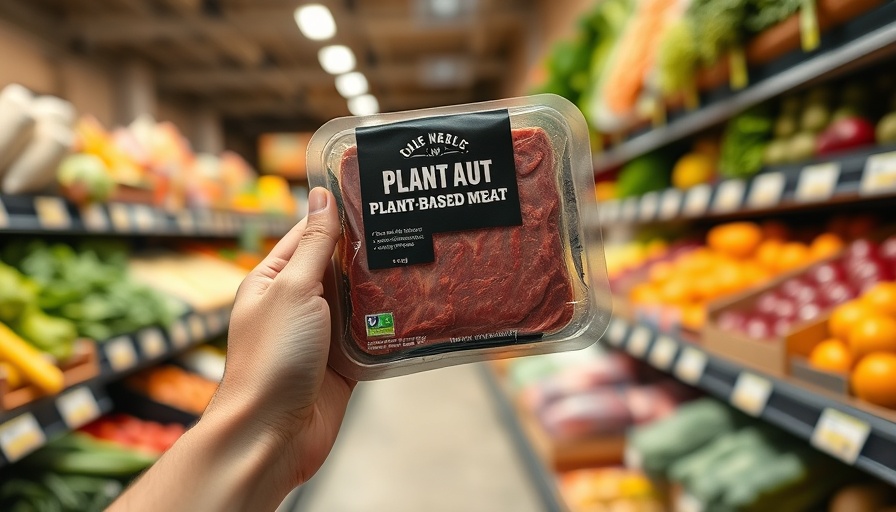
Understanding the EU's Decision on Plant-Based Naming
The European Parliament's recent vote to restrict the use of meat-related terms for plant-based products has created waves in the vegetarian community. While it may seem an effort to protect European farmers, the proposed legislation threatens to complicate the marketplace for plant-based eaters by banning popular names like "burger," "schnitzel," and "sausage" from packaging. This decision, pending approval from the European Commission and member states, suggests that industries will need to pivot creatively, coming up with labels like "vegaschijf" (veggie slice) to ensure compliance.
Implications for Innovation and Consumer Awareness
For consumers, this change might introduce unnecessary confusion. As research has indicated, consumers generally understand that products like vegetarian sausage contain no meat; past legal cases have shown that they are not misled by such branding. This raises the question: why impose additional restrictions that may lead to less market recognition for innovative companies like De Vegetarische Slager? The impact of this law could slow down product development and potentially discourage consumers who dabble in plant-based diets from making those choices if they can’t quickly identify their options.
Historical Context: The Rise of Plant-Based Eating
To appreciate the significance of this legislation, it’s important to note how rapidly the plant-based food sector has grown in recent years. In the Netherlands and beyond, more consumers are choosing plant-based options for health, environmental, and ethical reasons. Companies have responded by launching exciting and delicious alternatives to traditional meat products, reflecting a tangible shift toward sustainable eating patterns.
Diverse Perspectives on the Naming Controversy
It’s essential to acknowledge the varying opinions on this law. Supporters argue that it enhances the authenticity of food labeling, protecting consumers from deception. Critics, however, highlight how the measure could inadvertently signal that meat is the gold standard of desirable food, further entrenching it in our culture and making plant-based diets seem like a lesser choice. The question remains—how can the EU balance the interests of farmers, consumers, and innovators without reversing progress toward a greener future?
What This Means for the Future
As the potential regulation approaches, it’s vital for consumers to stay informed about these changes and how they might affect shopping habits. With initiatives to educate the public about plant-based nutrition needed now more than ever, industry players must step up to ensure that the message of sustainability and health remains clear. How will this shape consumer attitudes? Will a shift in packaging enhance recognition, or will it obscure plant-based options altogether? Those of us committed to a vegetarian lifestyle need to advocate for transparency in food labeling that encourages, rather than hinders, the transition to plant-based diets.
This situation invites all of us to engage in meaningful conversations about healthy eating, sustainability, and innovation. Consider sharing your thoughts on social media or with friends and family. Together, we can make sure our voices are heard as these new policies shape the future of our food.
 Rij toevoegen
Rij toevoegen






Write A Comment